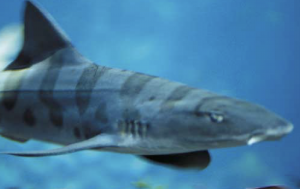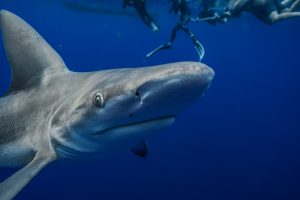Bangkok, 11 March 2013 IWMC World Conservation Trust, the world’s leading independent advocate for the sustainable use of wildlife, warned today that the decision by the Convention on International Trade in Endangered Species (CITES) to list a range of shark species in its Appendices will not produce the intended conservation outcomes.
CITES voted today to add to its Appendix II the oceanic whitetip, three species of hammerhead and the porbeagle. The shark proposals all received the required two-thirds majority of votes, albeit by small margins.
IWMC opposed the listings because international trade in fisheries is highly complex and not well-suited to the enforcement mechanisms applied more commonly by CITES to terrestrial species. This gives rise to overwhelming doubts that these new CITES listings will actually assist the species to recover, while raising concerns about the negative impacts they may have on the livelihoods of fishermen.
Eugene Lapointe, President of IWMC, said: “If recent history tells us anything, it is that the mechanisms of CITES cannot easily be adapted to promote the effective management of marine fish species. Fisheries management is best handled by regional organizations that have the tools to coordinate stock recovery efforts. CITES is deluding itself if it really believes that these listings of sharks will make any difference to stocks.”
CITES has a mixed record in aiding wildlife conservation, with some successes such as the vicuña, which was transferred from Appendix I to II at this meeting, but many disappointments, such as the tiger. It has also experienced significant problems implementing its existing listings for marine fish species, such as the humphead wrasse, which still has no agreed administrative management mechanisms in place.
IWMC believes that CITES listings of marine fish species add an unnecessary layer of complexity to the challenges of effective fisheries management. Most nations that belong to CITES also belong to regional fisheries organizations and are already in a position to establish capacity-building measures for vulnerable stocks.
View French PDF
View Spanish PDF



